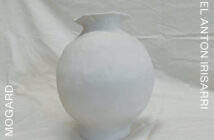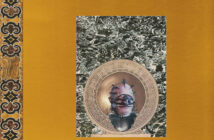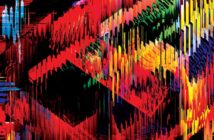
In the spirit of romanticism, Cambridge-based composer Ryan Teague seeks a synthesis of modern classical music and electronics. As in most marriages, the idea is that such a union will join the two in their strength, rather than in their weakness. As it happens, there is indeed a fullness to these compositions. A full orchestra – the Cambridge Philharmonic, no less – decorates gaseous clouds of electronics with Ligeti-like string flourishes and the odd harp glissandi, which affords these conventional areas of tonality and gesture a dash of exoticism.
At times, what unfolds is a fusion of formal and sensual elements. The title track is made up of a series of repetitive warm, bleary, low pitched electronics and the playful and poignant tinkle of Rhodri Davies harp, exploring the spatial dynamics of the piece by constantly shifting itself against the woozy cushions of reverb and delay. At other points, though, classical and electronica die at the hands of each other. ¨Nepesch¨, for one, turns out to be something of a lethal transfusion, with gauzy synth pulses breathing heavily over a lyrical violin and ringing bells in such a way that both lose their specificity.
In fact, despite the palette of textures and harmonies which a full orchestra affords, the grand scale of the proceedings leads numerous pieces to simply buckle under all the weight. There is little that distinguishes tracks like ¨Accidia¨ and ¨Seven Keys¨ from each other; both nonchalantly traverse through familiar harmonic territory, marked by lush, wavelike string sections, soapy melodies and the faint subliminal whirr of static. So easily do these pieces seep into the background that it takes the bubbling rhythmic bounce of album closer ¨Rounds¨ to bring the album back into focus. Once more, Davies contemplative harp kisses the foggy ambient sky, coloring it crimson, while glockenspiel overtones cycle pensively above. For these moments, pieces inhabit the air, emanating a spectral aura. Yet the composition, like most others, eventually lapses into lazy electronic dust and saccharine string sweeps, movements which suggest that Teague, though talented, has yet to really find his own form.
Max Schaefer



